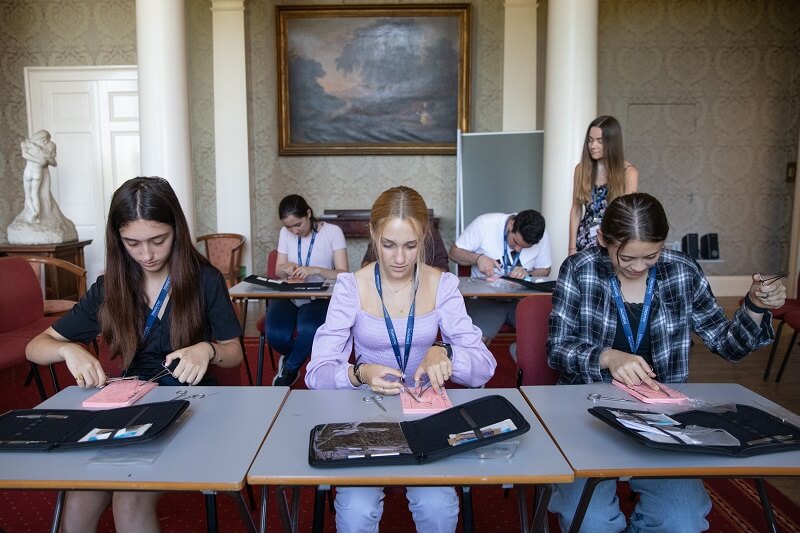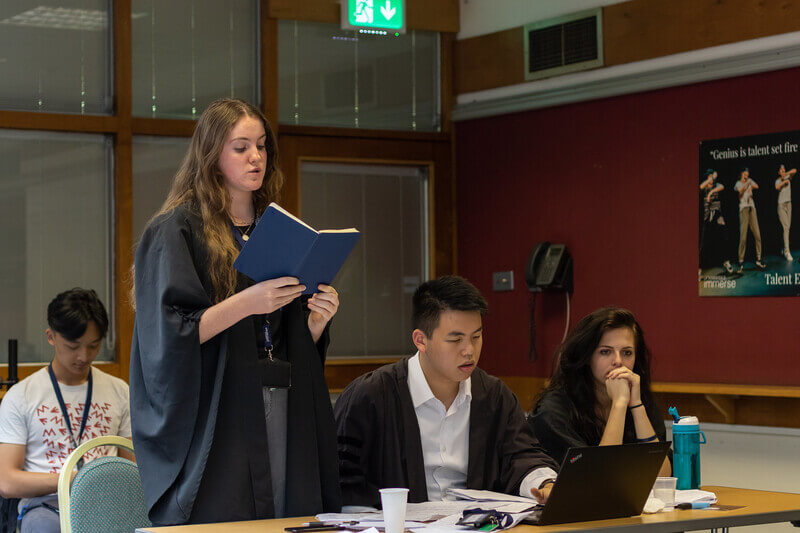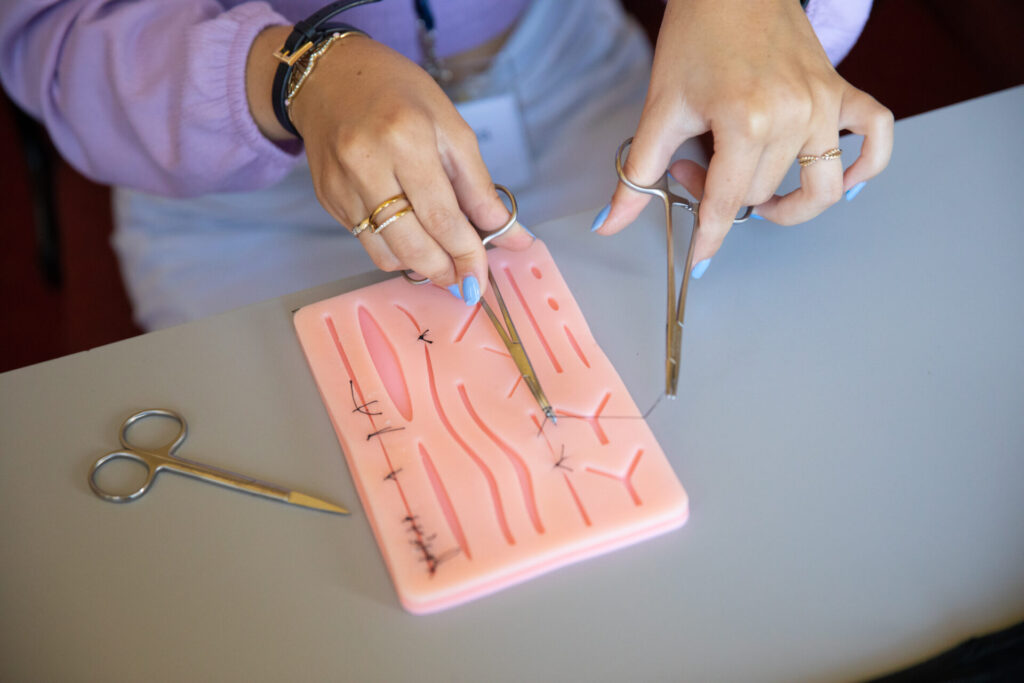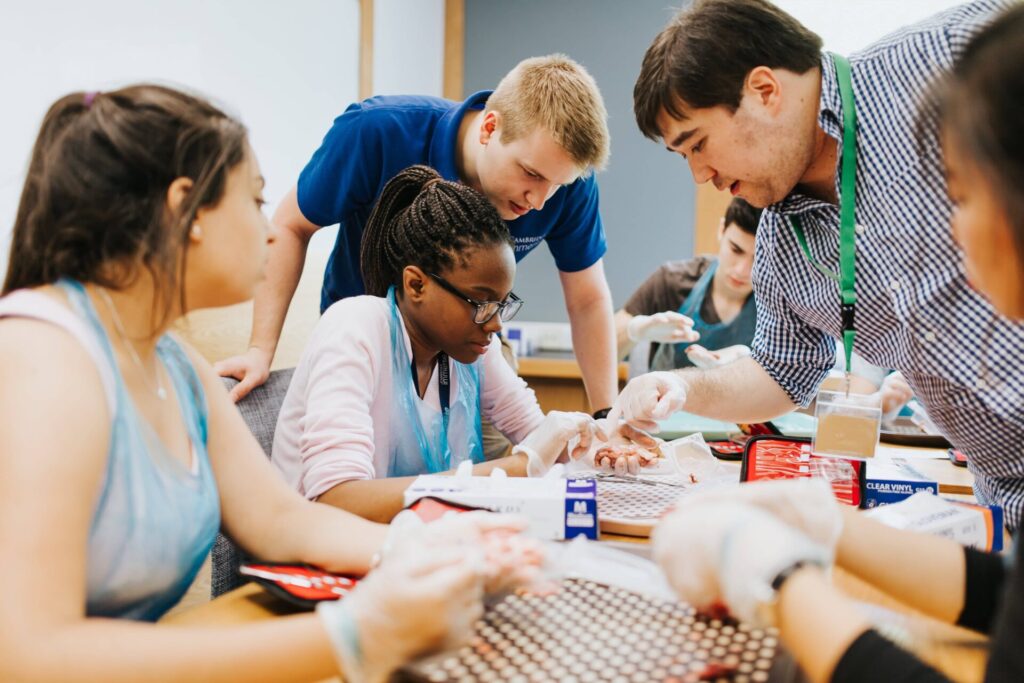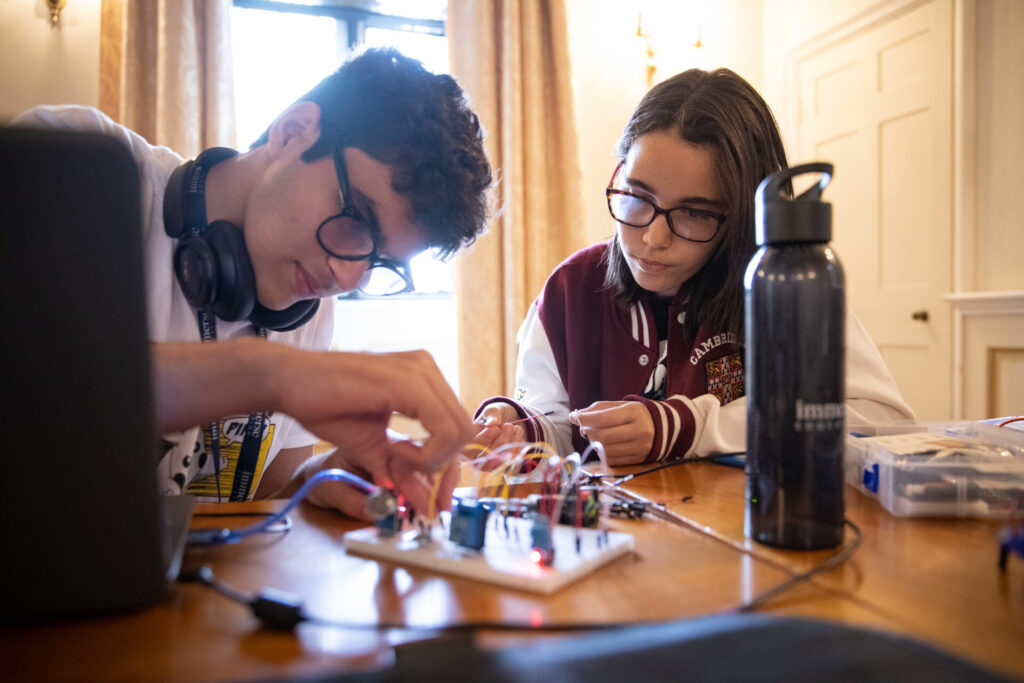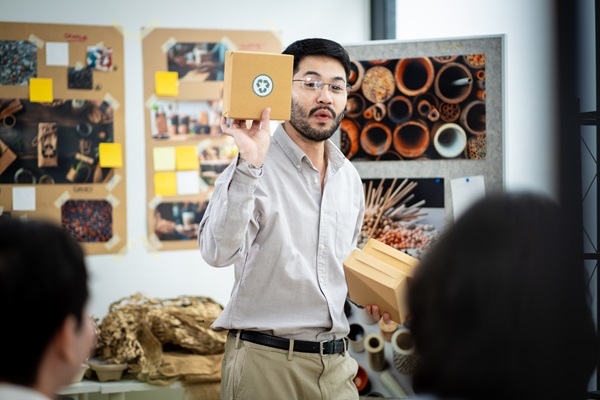Work experience for aspiring medics is an invaluable opportunity to gain insight into the medical profession. Whether you’re already certain about your future career in medicine, passionate about caring for patients, or fascinated by human biology, engaging in work experience can provide clarity and direction. If you’re certain about medical school, it’s a valuable chance to gain skills and experience different medical specialisms. This guide offers essential information to help you gain medicine work experience in year 12. We’ve included what makes medical work experience stand out on your application and how to secure meaningful placements.
Who Should Apply for Medicine Work Experience in Year 12?
Are you someone who’s fascinated by how the body works, eager to help others, or curious about what life is really like for doctors? Medicine work experience in Year 12 is perfect for students thinking seriously about a medical career — or even just exploring it. Whether you’re studying Biology and Chemistry or simply drawn to the idea of care and service, this is the time to see if medicine truly feels like your calling.
Year 12 is a crucial turning point. You’ve started your A-Levels, university decisions are on the horizon, and your interests are sharpening into something more focused. Gaining medicine work experience in Year 12 lets you test your instincts before the UCAS process begins. You’ll show commitment and be able to reflect meaningfully in your personal statement. Maybe you’ve always wanted to wear a white coat, or maybe you’re not quite sure what being a doctor really means day to day. Either way, stepping into a real healthcare environment at this stage gives you answers.
What Happens During Medical Work Experience for Year 12 Students?
If you’re in Year 12 and considering medicine, you might wonder what exactly you’ll do during a work experience placement. Unlike clinical placements for medical students, your experience will be carefully designed to be observational and people-focused. That doesn’t mean it won’t be meaningful.
Because of NHS policies and safeguarding rules, students under 18 can’t participate in hands-on clinical procedures or be left alone with patients. But this isn’t a limitation — it’s an opportunity to see the bigger picture. Work experience at this stage gives you a window into the whole healthcare system, not just the moments that make it onto TV dramas.
Depending on the placement, your experience might include:
Shadowing Clinical Staff
You might follow doctors or nurses during their rounds, observing how they communicate with patients and make decisions as a team. You’ll see how they prioritise, manage difficult conversations, and work under pressure. Even just listening in on these interactions can show you what empathy and professionalism look like in action. Modern simulation suites, like the one that students visit on our work experience programme, allow you to get hands-on during emergency medical and surgical scenarios.
Non-Clinical Exposure
Some of the most valuable insights happen away from the bedside. You might sit in on multidisciplinary team (MDT) meetings, learn how hospitals manage referrals, or observe how healthcare professionals navigate ethical dilemmas. Many placements also include time in reception, administration, or behind the scenes with allied health professionals like radiographers or physiotherapists.
Structured Reflection
Some hospitals and GP surgeries now pair work experience with reflective tasks or short workshops. You may be asked to note down key observations and consider how they relate to the core values of the NHS. Others may include short talks from junior doctors, Q&As with medical students, or mock triage activities.
Volunteering in a Healthcare Setting
If clinical shadowing isn’t immediately available, volunteering in a hospital, care home, hospice, or disability support centre is just as valuable. It’s also often easier to organise. You might help serve meals, offer companionship, or assist with activities. It’s not about ticking boxes — it’s about demonstrating that you understand what caring really involves.
What Do Medical Schools Actually Want to See?
It’s not about how many hospitals you visited or whether you got to observe surgery. The Medical Schools Council makes this clear: work experience isn’t about what you see, but what you learn. In their official guidance, they state that medical schools are looking for evidence that:
“You have had people-focused experience of providing a service, care or help to others and that you understand the realities of working in a caring profession.”
“You have developed some of the values, attitudes and behaviours essential to being a doctor such as conscientiousness, good communication skills, and the ability to interact with a wide variety of people.”
“You have a realistic understanding of medicine and in particular the physical, organisational and emotional demands of a medical career.”
This means your part-time job in a pharmacy, volunteering in a dementia ward, or even supporting a younger sibling with complex needs could be just as valuable as shadowing a consultant. What matters is how you reflect on those experiences.
At its heart, medicine work experience in Year 12 is your chance to begin understanding what a life in healthcare really entails. You’ll likely discover that it’s not just the science and prestige, but the service, sacrifice, and teamwork. When you see this up close, even in a non-clinical way, you start to ask yourself the right questions. Am I ready for this? What excites me about it? What might challenge me?
And if you’re not sure of the answers yet, that’s exactly the point.
Join the Immerse Education 2025 Essay Competition
Follow the instructions to write and submit your best essay for a chance to be awarded a 100% scholarship.

Why Completing Medicine Work Experience in Year 12 Is Worth It
Participating in medical work experience offers numerous benefits:
- Informed Career Choice: Experiencing the medical field firsthand helps you make an educated decision about pursuing a career in medicine.
- Enhanced Applications: Demonstrating commitment through work experience strengthens your medical school applications and personal statements.
- Personal Growth: Facing real-world challenges and responsibilities fosters resilience and adaptability.
- Networking Opportunities: Building relationships with healthcare professionals can provide mentorship and future opportunities.
Beyond bolstering your med school application, engaging in medical work experience in year 12 helps you develop crucial skills and attributes, including:
- Communication Skills: Interacting with patients and healthcare teams enhances your ability to convey information effectively.
- Empathy and Compassion: Understanding patients’ experiences fosters a compassionate approach to care.
- Teamwork: Collaborating with diverse healthcare professionals teaches you the importance of working cohesively in a medical setting.
- Time Management: Balancing multiple tasks and responsibilities prepares you for the fast-paced nature of medical careers.
These skills form the foundation of a successful career in medicine, but will impress even if you end up in a different industry.
How to Find Medicine Work Experience for Year 12 Students
Securing medical work experience in year 12 can be challenging, but several avenues can help:
- School Resources: Consult your school’s career advisors or teachers for information on local opportunities.
- Online Platforms: Websites like the Medical Schools Council and The Aspiring Medics offer guidance and listings for work experience placements
- Local Healthcare Facilities: Reach out to hospitals, clinics, or GP practices to inquire about shadowing or volunteer programs.
- Volunteering: Engage in community service or volunteer roles in healthcare settings to gain relevant experience.
Remember, persistence and proactive communication are key to finding suitable opportunities. To enhance your chances of securing a placement:
- Start Early: Begin your search well in advance to accommodate application processes and availability.
- Tailor Your Application: Customize your CV and cover letter to highlight relevant skills and express genuine interest in the specific opportunity.
- Prepare for Interviews: Research the organization and practice common interview questions to demonstrate your enthusiasm and suitability.
- Follow Up: After interviews or communications, send thank-you notes to express appreciation and maintain professional relationships.
A thoughtful and personalised approach can set you apart from other applicants.
Immerse Education’s Medicine Programmes for Aspiring Students
If you’re looking for an immersive experience that goes beyond the classroom and brings the world of healthcare to life, Immerse Education’s Medicine Career Insights Programme is an ideal choice. Designed for motivated students aged 16–18, it offers a real-world look at what a future in medicine could hold — from suturing skills to simulation labs, all based in the heart of London.
Over the course of two weeks, students don’t just explore anatomy or diagnostics; they gain hands-on experience in hospital settings, meet experts across the healthcare system, and develop the core values and skills that medical schools look for. Whether you’re already committed to becoming a doctor or still exploring your interest in healthcare, this programme helps you think critically, reflect deeply, and engage practically with the realities of the profession.
What sets this programme apart is the calibre of teaching and access. Led by Dr Keith Siew, a Cambridge graduate, EMT, NASA SciX Ambassador and international scholar, students benefit from the perspective of someone who’s worked across emergency care, world-class research and medical education. Dr Siew brings medicine to life with rare insight — helping students imagine where their passion could take them.
Throughout the programme, you’ll gain behind-the-scenes access to some of London’s most prestigious medical institutions:
The Royal College of Surgeons
At this renowned institution, students take part in a surgical skills taster workshop — learning how to tie surgical knots, gown and glove properly, and perform basic suturing techniques. You’ll also tour the Hunterian Museum, a unique collection of over 2,000 anatomical specimens, exploring how surgery has evolved from its ancient origins to modern robotics. The session includes a Q&A with a retired surgeon or trainee medic, offering insight into the realities of surgical training.
The Royal College of Physicians
Here, students explore the historical and ethical development of medicine, with access to rare books and medical artefacts. Through interactive workshops, you’ll identify the skills and values that make great healthcare professionals, and learn about the broad range of roles in today’s NHS. In the afternoon, Fellows of the RCP will lead a guided tour through the Garden of Medicinal Plants, showcasing over 1,100 species that tell the story of medicine through chemistry, culture, and care.
Hospital Simulation Suite
A visit to a London hospital’s E-simulation facility brings your learning into a clinical setting. Led by medical professionals, this session focuses on emergency A–E assessment (Airway, Breathing, Circulation, Disability, Exposure), using high-tech mannequins and scenarios to teach triage, trauma response, and decision-making under pressure.
Every part of the experience is carefully designed to mirror what the Medical Schools Council encourages applicants to demonstrate: a deep understanding of the demands of a medical career, the ability to reflect on care and service, and the development of core values such as communication, conscientiousness and resilience.
Whether you’re hoping to apply to medicine this year or simply exploring if it’s the right path for you, the Immerse Medicine Career Insights Programme helps you gain perspective, confidence and clarity. And, crucially, it gives you powerful, personal experiences to draw upon in your personal statement and interviews.
Take the Leap into Medicine
Embarking on medical work experience is a significant step toward a rewarding career in healthcare. By immersing yourself in real-world settings, developing essential skills, and reflecting on your experiences, you’ll be well-prepared for the challenges and opportunities that lie ahead in the medical field. Start exploring opportunities today and take the first step toward making a meaningful impact in people’s lives.
FAQs
What’s the difference between medicine work experience and medical internships?
Medicine work experience in Year 12 is typically short — often a few days or a week — and mainly observational. It’s designed to give you a broad overview of the healthcare environment, whether through shadowing, volunteering, or virtual simulation. Medical internships, by contrast, are longer and more structured, usually intended for medical students already in university. Immerse Education’s Medicine Career Insights Programme bridges this gap by offering hands-on exposure and reflection opportunities tailored specifically to pre-university students.
Where can I do medicine work experience in Year 12?
Opportunities include hospital volunteering schemes, shadowing in GP practices, care home placements, and large-scale programmes like Observe GP or hospital trusts’ insight days. Some schools also offer access to local NHS partnerships. And of course, immersive programmes like Immerse Education’s provide structured, guided experiences across multiple medical settings in central London.
Can I complete medicine work experience online?
Yes — many respected organisations now offer high-quality virtual work experience. Programmes such as Observe GP and BSMS Virtual Work Experience let you follow patient journeys, hear from clinicians, and reflect on the realities of care from home. Virtual work experience is now accepted by medical schools as valid, especially when it’s combined with thoughtful reflection. For a deeper understanding of specific areas of medicine, the Immerse Medicine Online Research Programme is an excellent option to explore.
What areas of medicine can I explore in Year 12 medicine work experience?
Depending on your placement, you could get insight into general practice, hospital care, surgery, emergency medicine, or even public health. Others focus on key transferrable skills like teamwork, ethics, and communication. Immerse’s programme touches on surgery, emergency response, diagnostics, and pharmacology — giving you a taste of the breadth within medicine.
How should I describe medicine work experience on my CV or personal statement?
Focus on what you learned, not just what you did. Reflect on the values and challenges of working in a caring profession, and highlight transferable skills like communication, empathy, problem-solving, or working under pressure. Be specific: what did you observe? What did it make you realise? How has it influenced your decision to study medicine? For general tips, see our guide on How to Add Work Experience to Your CV.





